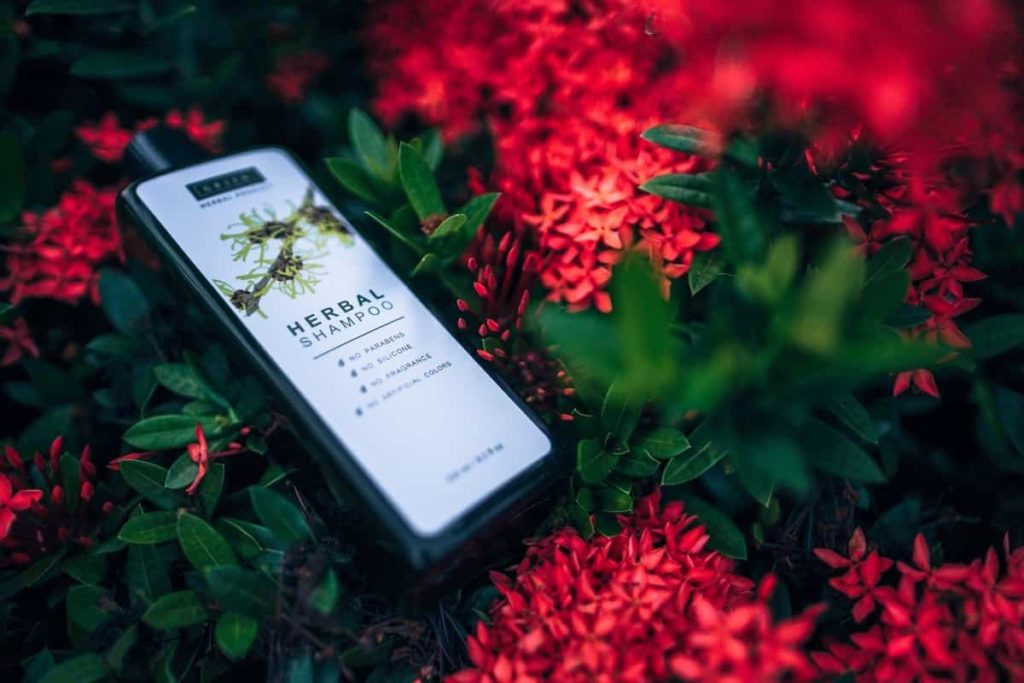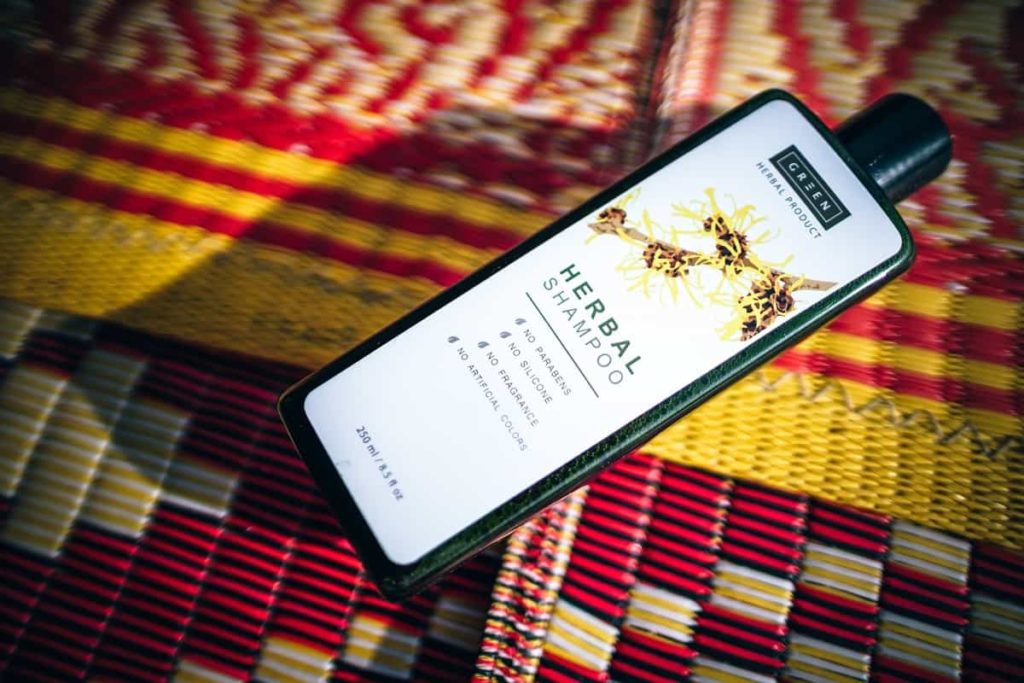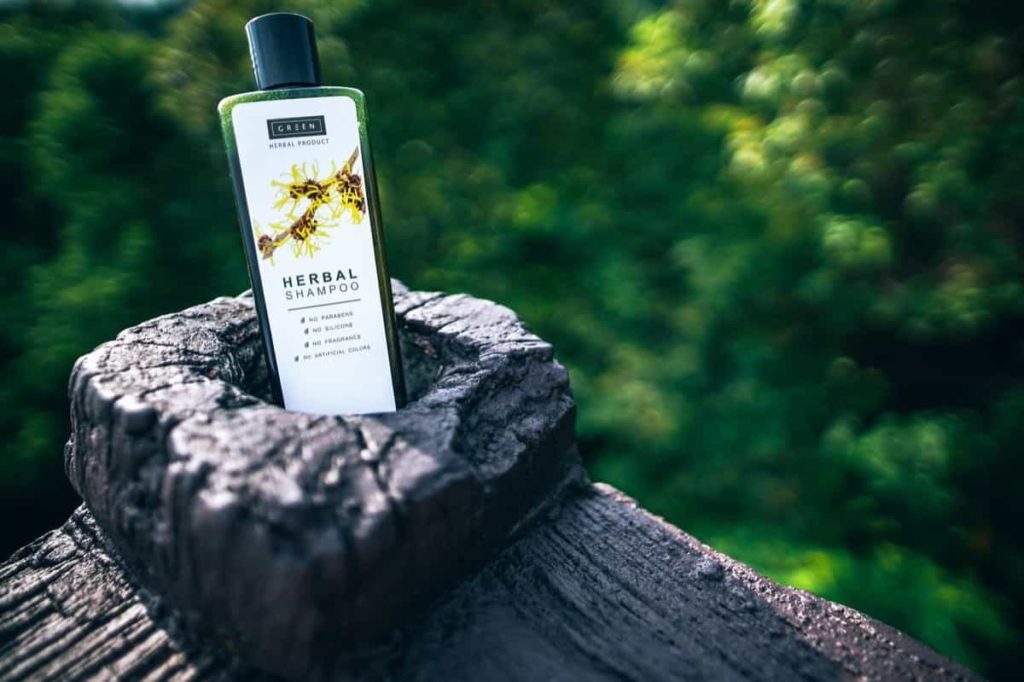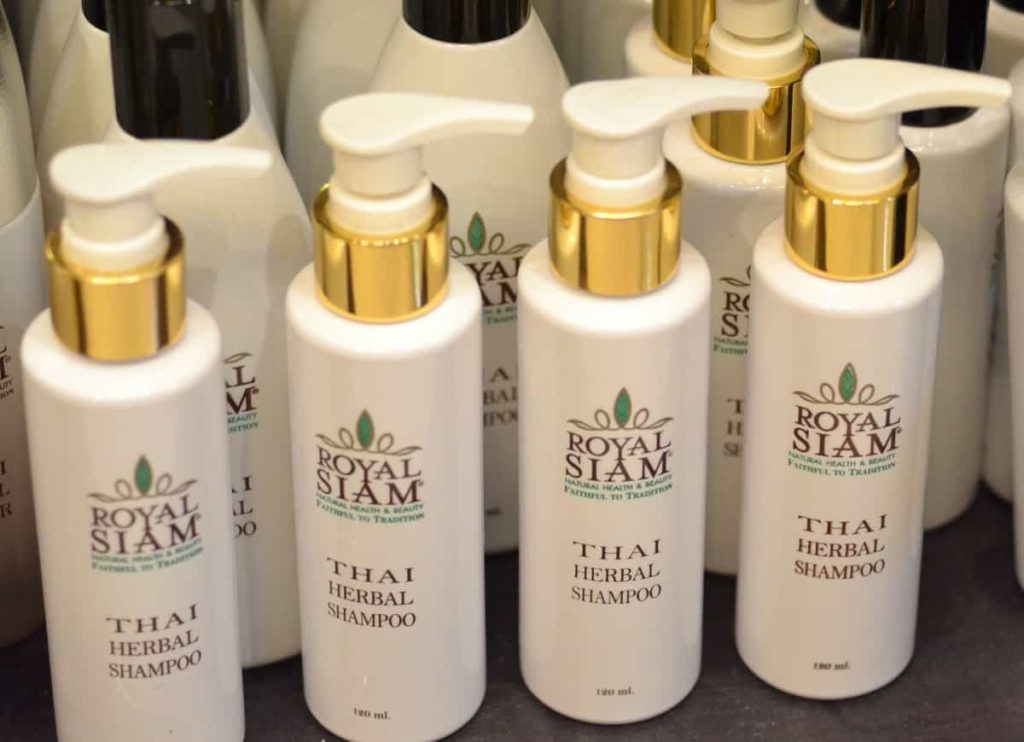Hair can be cleansed, nourished, and made to seem shiny using herbal shampoo. However, even though shampoos can be broken down into several categories, such as a liquid lotion and cream or a cream paste or dry shampoo, herbal shampoos, and more, there is still no shortage of shampoos. So, let’s check out how to make money from the herbal shampoo business.

Herbal shampoos were formerly used exclusively by the upper and upper-middle classes in the cities, but this has changed. Its use is expanding rapidly as people are becoming more aware. Individuals are currently using Herbal Shampoo in rural regions. Herbal shampoo is a popular choice for many individuals regarding grooming.
It is possible to make money by selling shampoo made from a combination of naturally occurring fruits, herbs, and plants, such as those found in the Herbal Shampoo Manufacturing industry. Here An herbal shampoo manufacturing business can be started on a small scale with the help of this article.
An overview of different shampoos
Keep in mind that Shampoos fall under the umbrella of Personal Care Products and are therefore considered a Fastest-moving Consumable Good (FMCG). At least one member of practically every family uses it daily. To put it another way, as opposed to other FMCG items, shampoos are a product that has even greater demand and sales in the market.
It’s worth noting that this business has developed a wide range of products and services in response to the increasing demand. For example, shampoos are now available in various varieties to suit customers’ preferences and hair types. Different shampoos are geared toward different hair types, including dry, harsh, dandruff-prone, etc. The Shampoo sector offers a variety of choices for manufacturers because of the wide range of options available.
In case you missed it: How to Make Money from Raisins (Kismis): Investment, Cost, and Profit Margin

Shampoos are now available in various forms and volumes and various variants. Shampoo Sachets have become more popular than shampoo bottles, more often marketed. Sachets are a great value, but they’re only intended to be used once or twice and are cost-effective, making them a top pick for a product while traveling with a family.
Scope for herbal shampoo
Personal hygiene and chemical-free products are two hot topics right now. Market demand for herbal goods is predicted to expand in the next years, as this trend encourages manufacturers to make more herbal shampoos to meet consumers’ needs. Most people choose to purchase herbal items, including shampoos, online because of the convenience, variety, and many discounts and deals that are accessible.
As a result, the herbal shampoo industry is more likely to establish long-term relationships with online distribution partners. In addition, businesses are also introducing various herbal shampoos for hair textures in this market area. When it comes to shampoo, those with curly or fine hair choose products that can help them maintain their style, while those with fine or thin hair prefer natural products that can add volume.
How to make money from the herbal shampoo business
Area requirements for a herbal shampoo manufacturing business
To make money from the herbal shampoo manufacturing business looking for an ideal location with proper water and electricity accessibility to establish your herbal shampoo business is the first step. If you start small, you will need at least 1000 square feet of area for this business. However, if you want to establish your business on a large scale, then a minimum of 4000 square feet of area is required.
In case you missed it: How to Make Money from Puffed Rice: Investment, Cost, and Profit Margin

You need to install a laboratory, storage, office, and manufacturing unit in your chosen area, so be careful while selecting the area. Ensure the area you choose is accessible to water, transport, and electricity. Also, you can start at home if you are starting small but be sure that you have enough space at your home. If the land is your own, you can be free of lease or purchase cost.
Herbal shampoo manufacturing plant cost
Many variables influence the cost of herbal shampoo manufacture, including production output, features, and the size of your business. Depending on the output and kind of plant you purchase, plant prices can range from as low as Rs. 1 Lac per unit to as high as Rs. 20 Lac per unit.
Business and license registrations for herbal shampoo manufacturing unit
The shampoo is cosmetic. It also involves the collection of particular permits before production. Find out what the laws are in your state. The following are some of the most fundamental requirements.
- The first step is to have your firm registered with the ROC. Then, choose wisely the structure of your firm.
- Get a business license from the local government.
- Apply for a pollution permit from the state’s pollution control board.
- In addition, you must register for Udyog Aadhaar MSME online.
- Become a GST-registered business.
- In addition, get BIS-certified. It’s a must.
- Last but not least, you’ll need to get a permit under the 1940 Drugs and Cosmetics Act.
- The confidence can also be gained via ISO 9001 certification.
In case you missed it: How to Make Money from Instagram in India: Ways, Ideas, and Tips

Raw materials required for making herbal shampoo
Several raw materials are used in the process of making herbal shampoo. Substances like Amla, Shikaki, Retha, Bramhi, and need leaves are required for making a herbal shampoo. You will also need Henna, Khus, Charilla, Acid slurry, aromatic substances, and dyes. You can contact your local wholesale suppliers to make money from the herbal shampoo manufacturing business to obtain these raw materials.
The machinery required for a herbal shampoo manufacturing unit
To manufacture herbal shampoo, you need machines if you want to go commercially. This step can cost you more, as the machinery can be costly if you establish your business on a large scale. However, you will need only very little money for a small-scale herbal shampoo business plant. You will need the following machinery if you are going to establish a herbal shampoo manufacturing plant unit.
- Grinding machine
- Distillation equipment
- Mixer
- Steel tanks
- Weighing machine
- Steel containers
- Lab equipment
- Pollution control equipment
The workforce required for a herbal shampoo unit
Any company, big or small, has to have a workforce to function. The manufacturing industry needs many employees to operate the equipment, ensure the product’s quality, conduct necessary research and development, etc. The number of employees required will vary based on the number of different varieties of Shampoo and the number of bars you want to sell and make. Here we will sell only herbal shampoo, so we need ample manpower.
At a minimum, two trained and unskilled employees and a supervisor who would oversee the types of herbal shampoos manufactured are required for a small-scale firm to operate well. It would need more than four skilled employees and even unskilled people together plus a manager to run a medium or large-scale firm. Again, the number of people needed may rise if the production facility produces more than one kind of Shampoo.
The herbal shampoo manufacturing process
What is the herbal shampoo formula? Amla, Reetha, and Shikakai are filtered through a fine mesh and treated overnight with DM water. The water and the combination of the three above should be equal in volume. Amla, Reetha, and Shikakai should be used in a 1:1:1 ratio. The following components are combined and heated for 3-4 hours to create a paste. Between 60 and 70 degrees, Fahrenheit is the ideal temperature.
In case you missed it: How to Make Money from Growing Lemongrass in India?

Removed from heat and cooled, the ingredients are ready to use. Everything is now further diluted with water, and the viscosity/mix is kept as necessary by the maker or as required by the customer. Charcoal or activated fullerene can be used to lighten and improve the transparency of filtered material at this stage, which is very dark reddish-brown. A funnel can be used for rapid filtering instead of a vacuum filter to save money. The pH of the whole shampoo can be adjusted by adding potassium carbonate to this filtered substance.
SLS can enhance foam at strength or concentration of 0.25 to 0.5%. In addition to the glycerine or EGMS, one TSF lanoline and one and a half TSP of Lecithin can be added to one kilogram of the above herbal combination. During the procedure, precipitation can be filtered out if necessary. Mixing essential oils, colors, preservatives, and other ingredients into the shampoo is now possible. 1 TSP of cologne can get the required combing effect on the hairs. Neem and Henna leaf water is advised for even better combing of hairs.
Marketing herbal shampoo business in India
Know your target audience when it comes to selling your herbal shampoo. You can approach various hotels, resorts, spas, and salons if you produce enough herbal shampoos per month. If you are going to establish a large manufacturing unit, it is possible to make your retail outlet for higher profits. You can also use online marketplace places for marketing your product. For example, use social media for advertising your product. Or else make a website of your own and sell your herbal shampoo from the orders.
In case you missed it: How to Make Money from Cab Services in India?

Profits involved in the herbal shampoo manufacturing business
When making herbal shampoos, the expected profits will rely more on the sorts of shampoos you produce and the amount you sell in the market. Selling Shampoo in Sachets, for example, would provide lower profits than selling it in a bottle since the profit margins are less.
However, a herbal shampoo manufacturing business can produce between Rs: 30,000 and 2 Lakhs a month by producing one or more. Profit margins may vary from 25% to 40%, depending on the product or service. If you’re dealing in Sachets, the figures might be different. However, this figure is simply an approximation of the profit that can be made, which might be higher or lower.
- Handicraft Making at Home: A Small Profitable Business Idea
- Pet-Tech Startups: Innovations for Animal Lovers
- Tech Repair Services: Meeting the Demand for Gadget Maintenance
- Maximizing Rewards: Smart Credit Card Habits for Cashback and Points
- Ultimate Guide to Making Money from Goat Milk Business
- How to Start an Agricultural Value Added Product Business
- Value-Added Business Ideas for Greenhouse: The Best Ways to Make Profits with Greenhouse Farming
- How to Make Profits with Organic Country Chicken: Best Strategies for Beginners
- 10 Value-added Business Ideas for Millets: Low-investment and Highly Profitable
- Why Cleaning Service Business Becoming More Profitable in Metro Cities in India
- 10 Best Businesses to Start in Ayodhya for Profits
- Top Drone Business Ideas in India: Unlocking Aerial Innovation & Opportunities
- Top 10 Service Businesses You Can Start with No Money
- Ultimate Guide to Starting a Home-Based Advertising Agency Business
- Starting a Nail Salon Near Your Location: Check List, Business Plan, Licensing, and Opening Instructions
- Construction Company Name Ideas: Guide to Create New Construction Company Names
- 8 Best Small Businesses to Start in Hyderabad: Low-Cost and Profitable
- 10 Best Small Businesses to Start in Massachusetts: Low-Cost and Profitable
- 10 Best Small Businesses to Start in Maryland: Low-Investment and Profitable
- 10 Best Small Businesses to Start in Delaware: Low-Investment and Profitable
- 10 Best Small Businesses to Start in Connecticut: Low-Investment and Profitable
- Top 10 Best Online Pet Business Ideas: Exploring Cats to Dogs
- 10 Best Small Businesses to Start in Colorado: Low-Investment and Profitable
- Top 10 Profitable Small Business Ideas in California: Low-Investment Tips
- From Little Rock to Fayetteville: Top 10 Profitable Small Business Ideas in Arkansas
- Top 10 Profitable Small Business Ideas in Alabama: Discover Opportunities in Alabama’s Growing Cities
- Top 10 Profitable Small Business Ideas in Arizona: Discover Opportunities in Arizona’s Growing Cities
- Golf Business Ideas: Exploring Golf Course Money Making Ideas
- Low Capital Profitable Small Farm Ideas: Farming Ideas to Make Money
- How to Write a Business Plan for Daycare: Exploring from Financial Projections to Risk Management
- Home Daycare License Requirements: Exploring State-wise In-home Daycare Requirements
- How Profitable is Day Care Business: How Much Does a Daycare Owner Make a Month or Year?
- How to Open a Daycare Center in Toronto, Canada: Business Plan, Licenses and Permits
- How to Start Meal Prep and Delivery Services: A Popular Business Idea
- How to Start a Milk Chilling Plant Business
- How to Start Coconut Shell Charcoal Business: Business Plan for Maximizing Profits